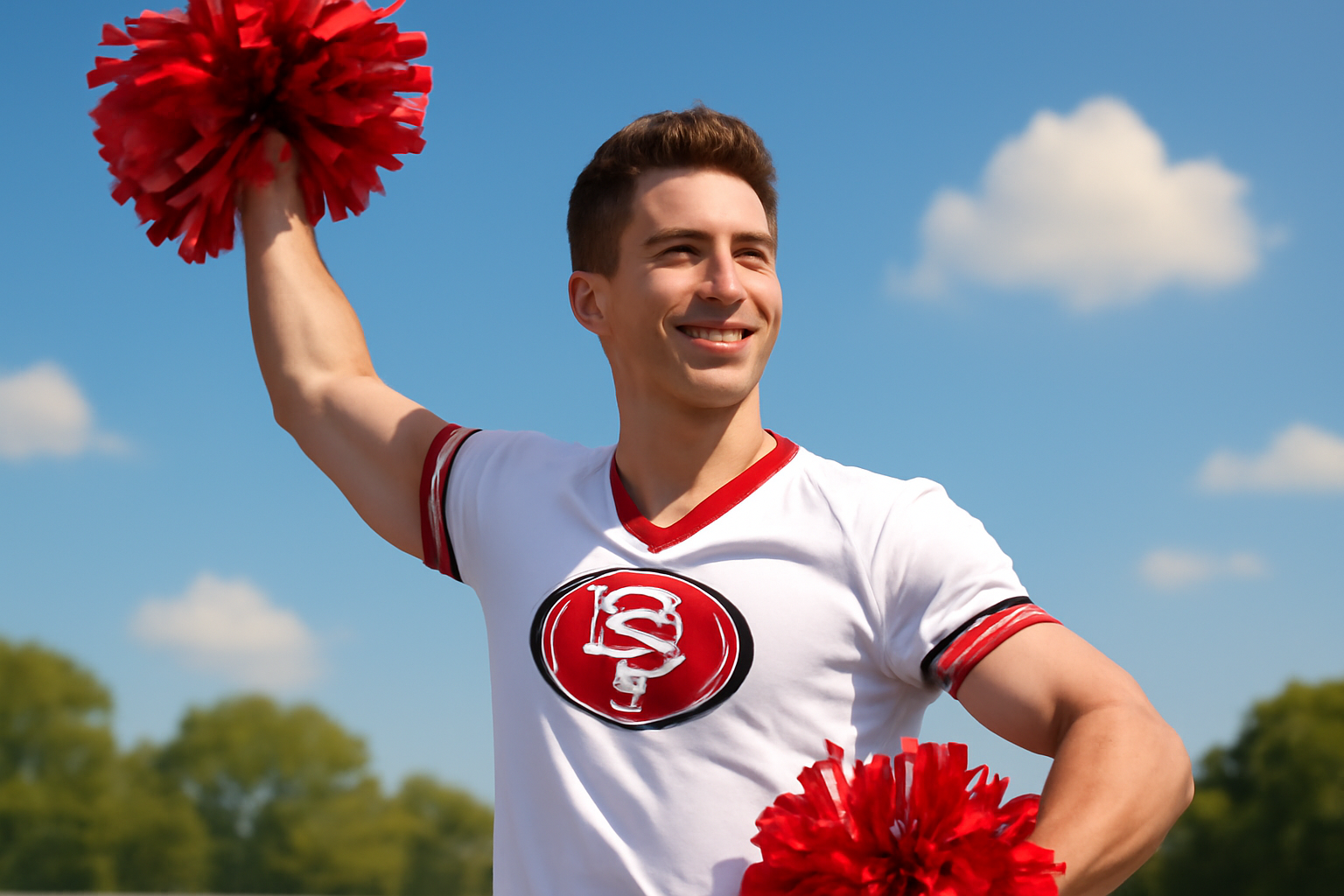
In recent times, a male cheerleader performing for the San Francisco 49ers has sparked conversations about masculinity in sports on social media. Some self-proclaimed traditionalists have voiced their discomfort, associating male cheerleading with a shift in sports culture. However, the presence of male cheerleaders offers an opportunity to make sports more inclusive for LGBTQ+ fans.
Typically, such critical comments on social media stem from a lack of understanding of gender roles. It is easy to dismiss these as just another instance of homophobic rhetoric online. But this particular story resonated personally with me. While some football fans see a male NFL cheerleader as a threat to their perception of the sport, in reality, cheerleaders act as a bridge for non-traditional audiences, including those in the gay community, to engage with sports.
Join the Game
Cheerleaders were integral to my evolution as a sports enthusiast. Growing up, I had the chance to attend basketball games at my dad's high school where he managed the concession stand. This exposure allowed me to enjoy the games and interact with the cheerleaders, who were always supportive and encouraging.
These interactions were crucial during my formative years. I learned the rhythm and moves of their cheers, which became a part of my game-night experience. Even as a young boy, the cheerleaders were welcoming and never made me feel out of place, unlike the hyper-masculine atmosphere often found at major sports events.
A Personal Journey
Reflecting on my childhood, I fondly remember joining the cheerleaders during their routines. It seemed natural to jump in and chant "WE’VE GOT SPIRIT!" alongside them. My participation was never met with disapproval from my father. Instead, he only cautioned me not to intrude on their practice but never criticized my interest in cheerleading because of my gender.
This was significant for parenting in the 1980s. During a time when society often pressured individuals to conform to rigid gender norms, my father’s supportive attitude provided me with a sense of acceptance. It helped me embrace parts of myself that the world often deemed as eccentric.
The Importance of Representation
The recurring theme of representation is crucial. Male cheerleaders embody an example of inclusivity within the sports community. Their presence challenges traditional gender norms and creates space for fans like myself to feel seen and accepted.
Despite the lack of representation in major sports leagues during my era, my passion for sports persisted. However, I recognize that my experience was not universal. Many potential LGBTQ+ sports fans may have felt unwelcome due to the lack of representation and acceptance.
Male cheerleaders, by openly supporting their teams, can attract more LGBTQ+ individuals to the sports world. For me, cheerleading was a gateway to feeling a part of sports culture, allowing me to be my authentic self.
In conclusion, the inclusion of male cheerleaders should be valued more by the sports industry than the criticisms of a vocal minority. By fostering an inclusive environment, sports can become a space where everyone, regardless of gender or sexual orientation, feels welcome and valued.
To keep up with inspiring stories in the LGBTQ sports community and support inclusive sports initiatives, staying informed and engaged is essential. Let's champion those who make sports a welcoming space for all.
Related Posts
Triumphant Trans Woman Wins Legal Battle and Inspires Others to Stand Up for Their Rights
Breaking new ground: a landmark victory in transgender rights After battling in courtrooms and enduring endless challenges, Diana Portillo, a transgender woman, has secured a monumental victory in her decade-long fight against workplace discrimination. The result? Nearly $1 million awarded in a historic settlement. But this isn't just a win on paper—it represents a powerful precedent in combati [...]
Pride Month in Latin America: Protests and Demands for Equality
**Celebrating Pride and advocating LGBTQ+ rights in Latin America** Pride Month in Latin America was a lively mix where celebration met activism. Communities united, not just throwing a party but making a stand—demanding equality and pushing governments toward better protection and rights recognition. Throughout Latin America, pride events erupted in marches and cultural displays, each with a c [...]
Transgender Erasure Actions Implemented by National Park Service
```html Trump administration's impact on national park service and transgender recognition The Trump administration made notable moves in undermining transgender representation, which included directing agencies like National Park Service not include "T" and "Q" when they refered “LGBTQ” in any official communication. This move seems part a broader plan by this administration aimed at reducin [...]